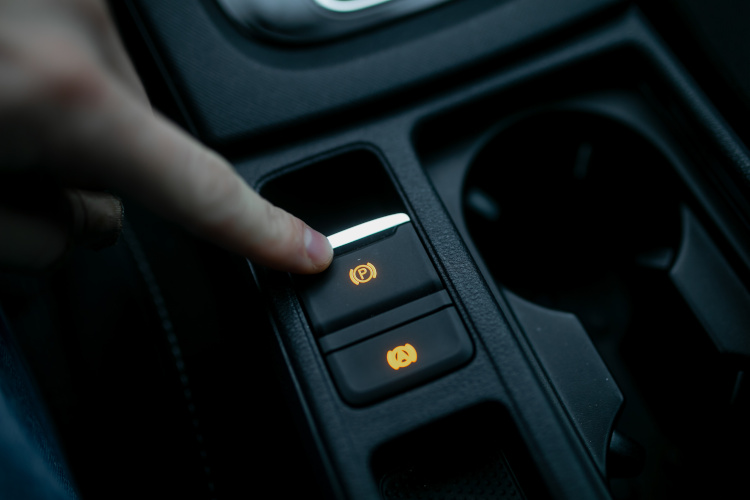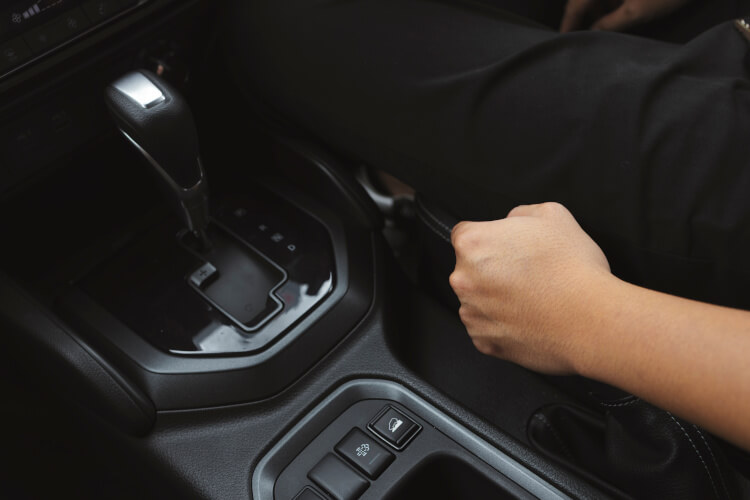Join the conversation
We love to hear from our customers. Connect with us today and let’s start a conversation.
...searching

A faulty handbrake might seem like a minor inconvenience at first – but when it comes to your
MOT, it can quickly become a major problem.
As part of your vehicle’s braking system, the handbrake (also referred to as the parking brake) plays a critical role in keeping your car safely stationary, especially when parked on a slope.
If the handbrake doesn’t perform as it should during your MOT, it could result in a fail.
In this guide, we’ll explore the reasons why, highlight what to look out for, and explain what you can do to fix handbrake issues before test day.
The handbrake is a secondary braking mechanism designed to keep your vehicle still when parked.
It works independently from your main foot brake and is especially important when parking on an incline or when stationary in traffic for prolonged periods.
Most traditional
vehicles are fitted with a lever-operated handbrake located between the front seats.
However, some modern cars now feature electronic parking brakes (EPBs), which replace the lever with a button or switch.

Despite this difference in operation, both types serve the same purpose – to hold the car firmly in place.
Since it contributes directly to your car’s safety, the handbrake is one of the components checked during an MOT.
Yes, a faulty or ineffective handbrake can result in your car failing its MOT.
During the test, your vehicle’s handbrake is checked for how well it holds the car stationary, how far it needs to travel before engaging, and whether it shows any signs of failure or damage.
Some of the most common reasons a handbrake can cause an MOT fail include:
Even if your car appears to drive normally, a compromised handbrake can lead to a major or even dangerous defect – both of which will prevent a pass certificate being issued.

MOT testers perform a visual and mechanical inspection of the handbrake system. This includes:
Vehicles with electronic systems will also be checked for electrical functionality, including whether the motor engages and releases as expected.
There are a few tell-tale signs that your handbrake may not be functioning correctly.
If your car starts to roll slightly when parked on a hill, even after you’ve applied the brake, it’s likely that something isn’t working as it should. Likewise, if the handbrake lever feels unusually loose or needs to be pulled up higher than usual, this could signal that the cable is worn or stretched.
Another key indicator is your dashboard. If the parking brake warning light stays illuminated after the engine has started – or lights up while driving – it’s best to get the system checked as soon as possible.
You might also hear unusual noises when engaging or releasing the handbrake, particularly if the system is sticking or partially seized.

These symptoms are unlikely to resolve on their own and should be inspected by an expert technician at your local garage to prevent more serious problems.
How Can You Fix a Faulty Handbrake?
Fortunately, most handbrake issues can be repaired relatively easily by a qualified mechanic.
The most common fix is a simple adjustment to the handbrake cable, which restores proper tension and engagement.
If the cable itself is damaged or overly stretched, a replacement may be necessary.

For mechanical systems, worn brake pads or shoes could also be the culprit, especially if they’re no longer gripping effectively.
More complex faults, such as a failed EPB motor or damaged module, may require part replacement.
No matter the issue, it’s important to have the system diagnosed properly before your MOT. Acting early could save you time, hassle, and the cost of a failed test.

A handbrake might not be something you think about often – but it plays an essential role in your car’s overall safety.
During your MOT, any fault in the handbrake system will be taken seriously, whether it's mechanical wear, poor efficiency, or a warning light indicating something’s wrong.
If you’ve noticed issues with your handbrake or suspect it might not perform reliably during the test, don’t leave it to chance.
Have your vehicle inspected by a professional before your MOT to avoid a potential failure and ensure everything is working as it should.
By catching faults early and making the necessary repairs, you’ll be giving your vehicle the best chance of passing – and keeping your braking system operating safely for miles to come.

We love to hear from our customers. Connect with us today and let’s start a conversation.